DVD Review: Compliance (2012)
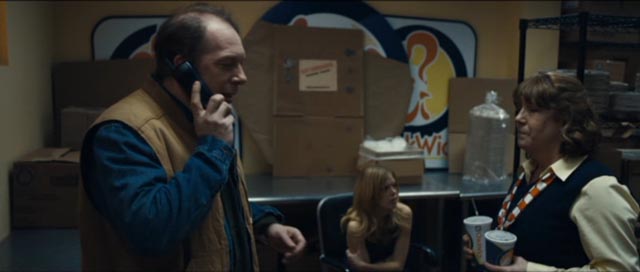
“Inspired by true events.” “Based on a true story” … audiences have had good reason to be skeptical about such claims at the start of a movie at least since The Texas Chainsaw Massacre (1974). And as Craig Zobel’s uncomfortably tense Compliance unfolds, the viewer may feel an increasing sense of disbelief … how could people possibly behave the way they do in this claustrophobic story? Surely any sensible person would see through the hoax immediately …?
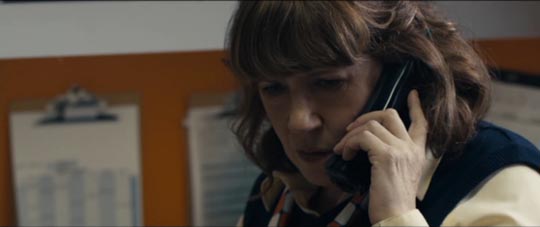
Compliance is set in a strip mall fast-food joint somewhere in the mid-west. The manager Sandra (Ann Dowd) is having a bad day; one of her employees left the freezer open over night and $1400-worth of food has been ruined, leaving the restaurant short of supplies for the upcoming busy Friday evening. She’s put off informing her area manager although she knows that she’ll have to face the music sooner or later.
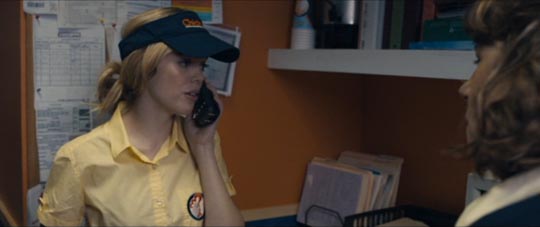
As business starts to get busy, Sandra receives a call from a man identifying himself as Officer Daniels. He quizzes her about an employee, a young blond woman whom Sandra identifies as Becky (Dreama Walker). The officer tells Sandra that he’s with a woman who claims that Becky stole money from her at the counter. Claiming that he has Sandra’s district supervisor “on the other line”, he instructs Sandra to get Becky into the back office where he proceeds to intimidate the girl with threats of arrest and jail if she won’t cooperate. Confused, denying any wrong-doing, Becky is willing to do whatever he demands to avert further trouble.
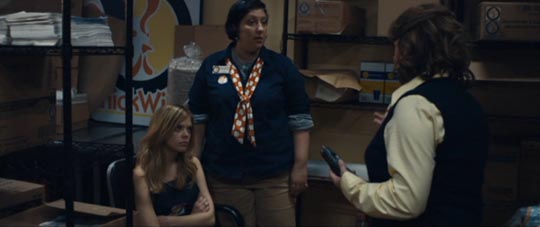
The officer then gets Sandra to go through an escalating series of increasingly intrusive procedures, starting with searching Becky’s purse, then her clothes … then getting the increasingly uncomfortable Sandra to perform a strip search, taking Becky’s clothes away and leaving her scared and vulnerable with just an inadequate apron to protect herself as other members of the staff are brought in to assist.

As time passes and the situation escalates, you wait for Sandra to balk, for Becky to refuse to continue to cooperate … but these two women seem to be trapped in a process which neither of them have the strength to break free of. Officer Daniels uses manipulative techniques, intimidating Becky with his authority, maintaining Sandra’s cooperation with a mixture of flattery (feeding her bits of confidential information about the “case”; congratulating her on her investigatory skills) and barely concealed threats.
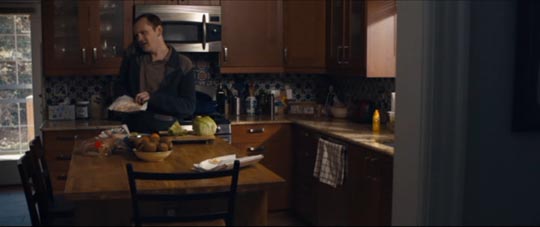
As the hours pass and more people become involved, as the situation escalates from one of mere intimidation to actual assault, the viewer is likely to think that these people are rather stupid. But then everyone likes to think that he or she is too smart to be taken in by a hoax. When, halfway through the film, Zobel reveals that Officer Daniels is a man (a chillingly plausible Pat Healy) sitting in his own kitchen with a cellphone and a notebook in which he jots down details to help him keep the story running as long as he can, the director almost seems to be encouraging that sense of superiority in the audience.
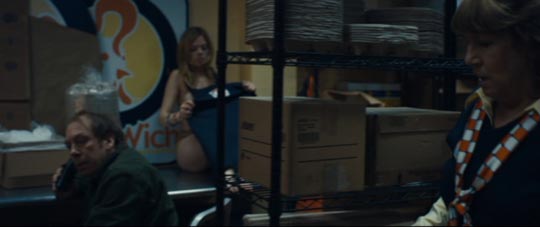
But the performances – particularly Dowd and Walker – are so nuanced, so convincingly human, that the viewer must constantly question that sense of superiority. And when you know that the script faithfully follows an actual incident (at a McDonalds in Mount Washington, Kentucky in 2004) which was the last of more than 70 in 30 states over a ten year period, it becomes impossible to dismiss the situation as an example of gullibility or stupidity.
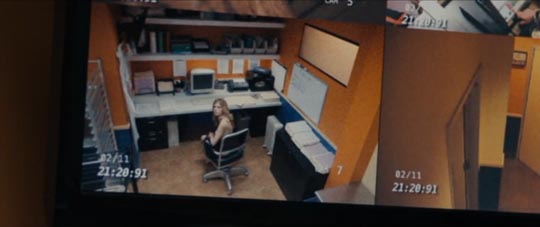
Written and directed with precision, and an attentive eye for behavioural details, Compliance is a stark reminder of something most of us are reluctant to admit to ourselves. In a culture which encourages us to see ourselves as autonomous individuals, the fact that we are actually social animals who are programmed to respond to hierarchies of authority is decidedly uncomfortable. Zobel, in a brief interview included on the DVD, cites the famous experiments of Stanley Milgram which showed that reasonable and intelligent people were willing to inflict pain on strangers when the responsibility for their actions was assumed by an authority figure … but there are far too many examples outside the laboratory, in the real world, for us to doubt the innate tendency of human beings to obey those who take a dominant role.

The script is brilliant in showing the ways the caller subtly shifts, embellishes, and expands the narrative he feeds Sandra in order to prevent the harassed woman from pausing long enough to start questioning the plausibility of what he’s telling her. Perhaps more disturbing is the way the naive and inexperienced Becky is made to comply with her own abuse.
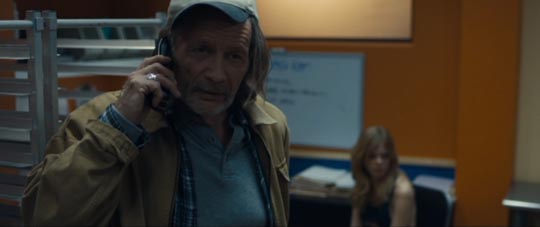
While the script is drawn closely from the actual incident, the setting in a fast-food restaurant is dramatically perfect; here is an already oppressive work environment, a place where Becky is essentially a powerless cog in a structure dictated by the corporation which owns the place. Although it’s clear that the workers here have little respect for Sandra and ridicule her behind her back, this behaviour is an expression of their powerlessness. They have no real autonomy – so when Sandra, obeying instructions from an authoritarian voice over the phone, demands Becky’s compliance in a series of deeply humiliating procedures, the girl has no power to resist. She can only beg for relief which is never granted.
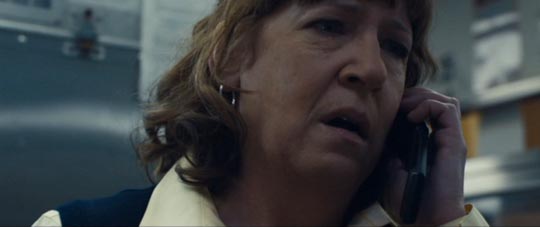
Although most of the film takes place in a single room with the characters interacting more with a voice on the phone than with each other, Zobel’s direction is impeccable, creating a tension which is often squirmingly uncomfortable in the claustrophobic setting. This combination of claustrophobia and disconnection reinforces the film’s central theme of ordinary people being willing to perform unacceptable acts when directed by authority. The final shot, a brief and subtle moment of self-awareness, is one of the most chilling seen in recent film.
Magnolia’s DVD presents a crisp 2.35:1 image and 5.1 Dolby sound, and three very brief featurettes in which many interview clips with the director and actors are repeated.
Comments